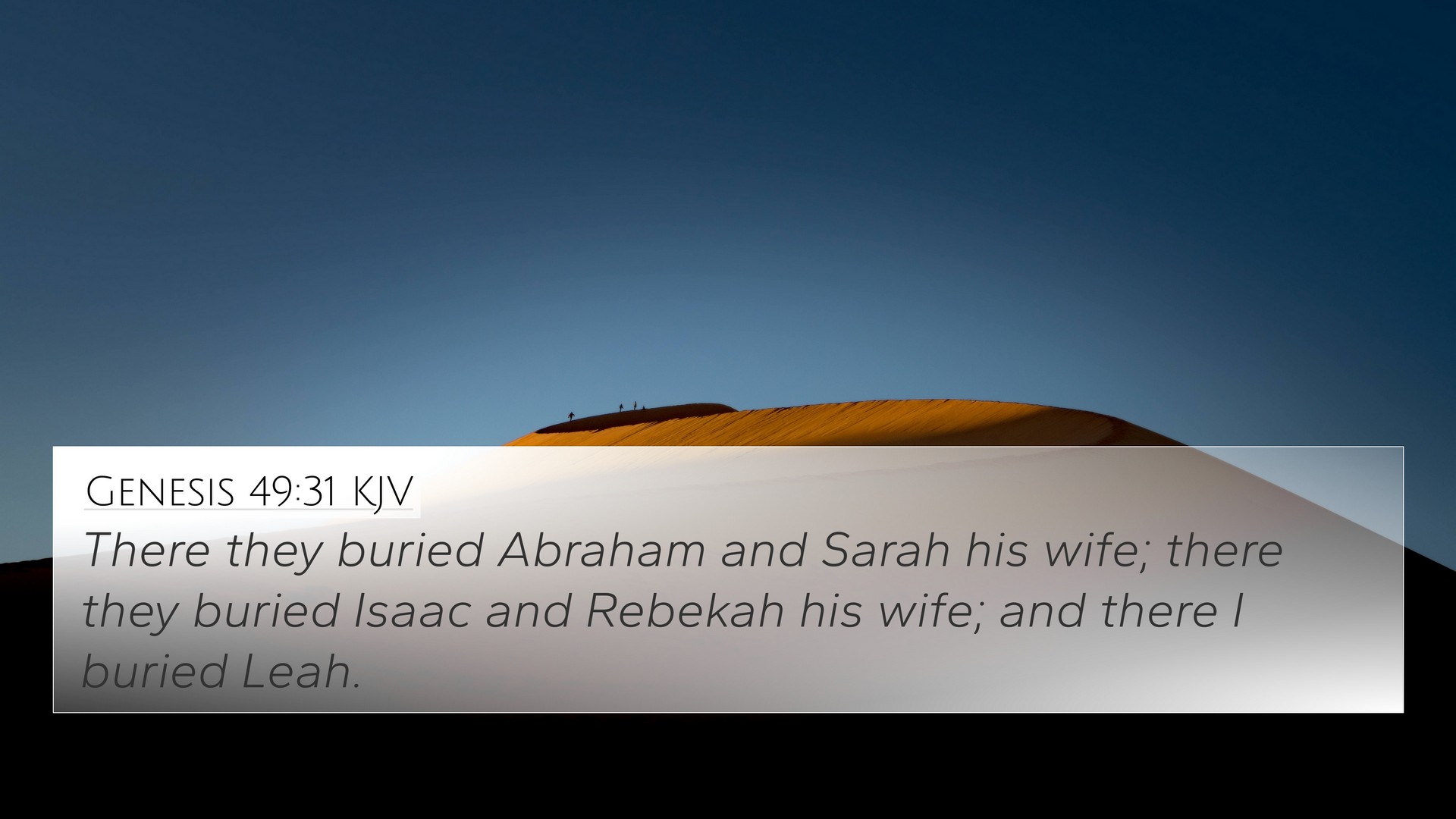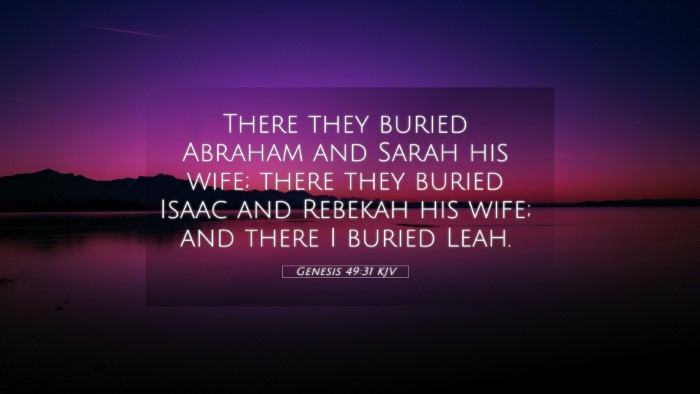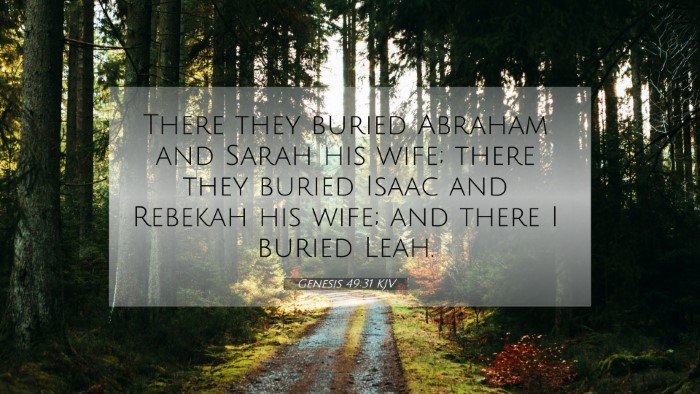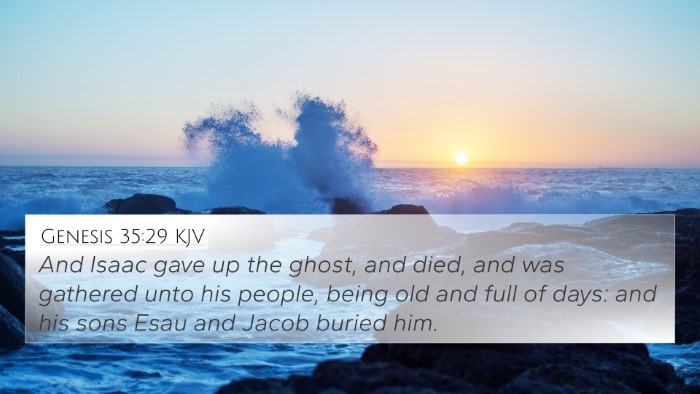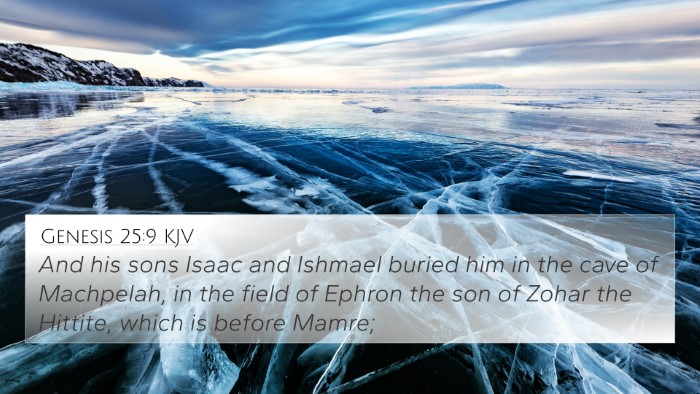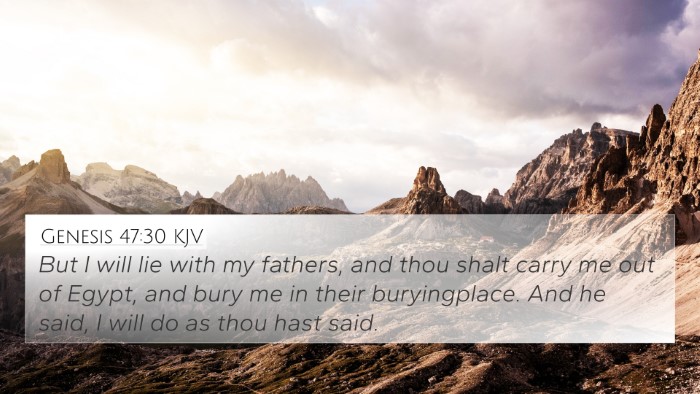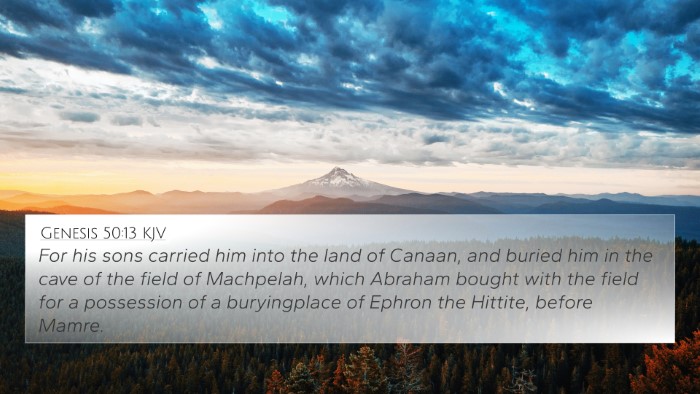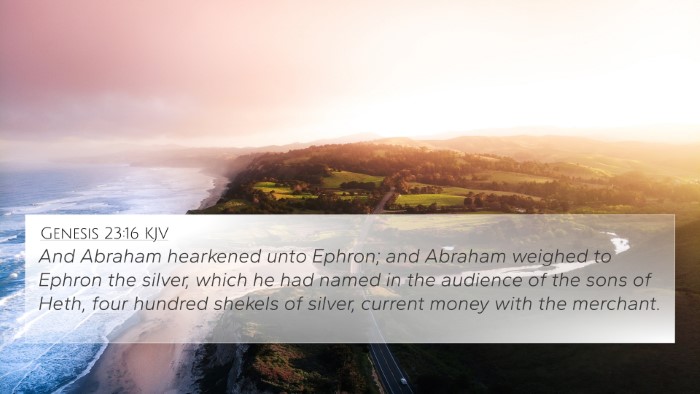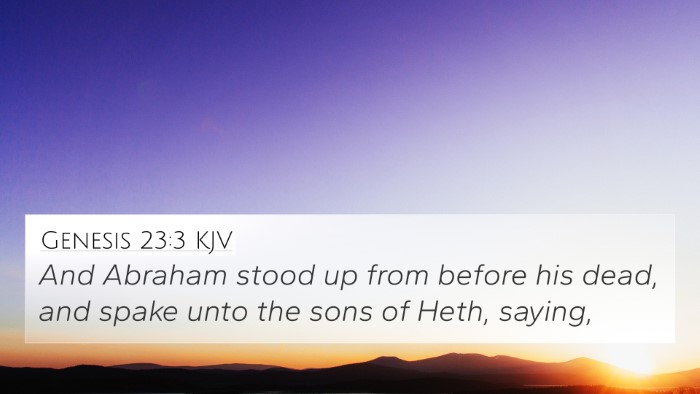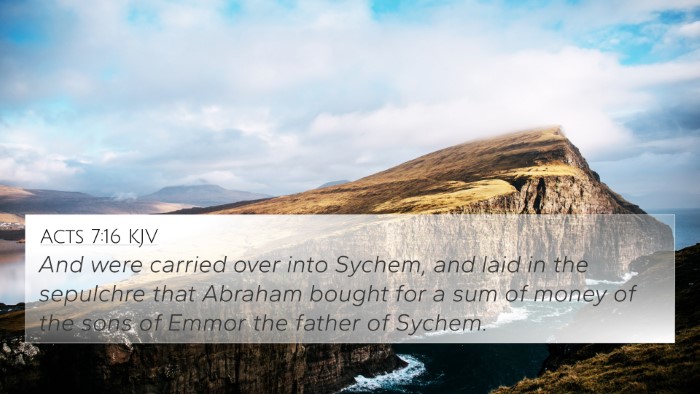Understanding Genesis 49:31
Genesis 49:31 states: “There they buried Abraham and Sarah his wife; there they buried Isaac and Rebekah his wife; and there I buried Leah.” This verse is located at the conclusion of Jacob's blessings and serves as a poignant reflection on family, legacy, and the significance of burial places in Biblical tradition.
Meaning and Context
In the context of Genesis, Jacob is bequeathing his blessings to his sons just before his death. He recounts the significance of the family burial site located in the cave of Machpelah, which Abraham had purchased. The grave served as a physical reminder of God's covenant with Abraham and his descendants.
Commentary Insights
-
Matthew Henry:
Henry emphasizes the importance of Machpelah as a symbol of God’s promises and a family stronghold. He notes that it is not merely a burial ground but a testament to God's faithfulness to Abraham, Isaac, and Jacob.
-
Albert Barnes:
Barnes points out that the mention of Leah's burial implies her importance in Jacob's life. He likens her place in the burial site to the honoring of her role within the family lineage.
-
Adam Clarke:
Clarke provides a historical view, noting that this location serves as a foundational site not only for Jacob's family but also for the nation of Israel. He underscores the covenantal significance of the land to the descendants of Jacob.
Biblical Cross-References
This verse connects to several other scriptures that deepen its meaning:
- Genesis 23:19: Details the purchase of the cave of Machpelah by Abraham, emphasizing its importance as a family burial site.
- Genesis 35:19: Refers to the death and burial of Rachel, connecting familial themes.
- Deuteronomy 34:5-6: Speaks of Moses’ burial, further establishing the significance of burial locations in Israel’s history.
- Hebrews 11:9-10: Discusses how Abraham looked forward to a city whose builder is God, connecting earthly burial sites to eternal promises.
- Matthew 27:57-60: In the New Testament, Joseph of Arimathea provides a tomb for Jesus, reflecting the importance of burial and respect for the dead.
- Acts 7:16: References the patriarchs’ burial in Shechem, adding another layer to the family heritage.
- Revelation 21:2: The new heaven and new earth, emphasizing the continuity of God's promises from Genesis through Revelation.
Thematic Connections
The dynamics of family, memory, and heritage are profound themes in this verse. The act of burial described in Genesis 49:31 reinforces the interconnectedness of the family tree and the faithfulness of God through generations.
Connecting Biblical Texts
This verse illustrates the thematic cross-referencing found in the Bible:
- Legacy: The continuation of Abraham’s lineage is a recurring theme throughout scripture.
- Faithfulness of God: Promises made to the patriarchs are fulfilled, particularly observable through generations.
- Family Unity: The importance of clan and heritage is celebrated, particularly in burial practices.
Understanding Through Cross-Referencing
By engaging in a comparative Bible verse analysis, one can see how Genesis 49:31 fits into the larger narrative of Scripture. Tools for Bible cross-referencing can help readers identify connections between Old and New Testament themes, enhancing their understanding of God’s promises.
Conclusion
Genesis 49:31 is not merely a recounting of burials but a significant theological reflection on Israel's identity and God’s ongoing covenant. Through cross-referencing Bible verses, believers gain a deeper perspective on the interconnectedness of the Biblical narrative.
